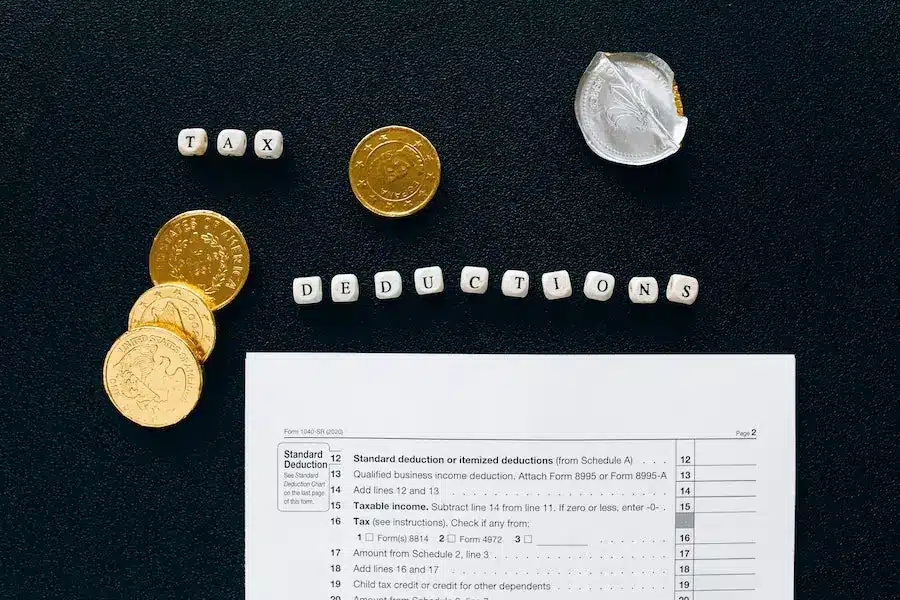
Managing your business taxes as a self-employed person can be a challenging undertaking. Freelancers and small business owners must understand the tax rules and determine how to optimize their tax deductions, unlike employed workers. This process can be difficult and demands careful planning and close attention to details. Yet if you have the correct advice and information, you may maximize tax deductions and save money when it comes to filing your taxes.
Understanding the many deductions that are available to you as a self-employed person is the first step to optimizing your tax deduction. Office supplies, utilities, and rent are all deductible business expenses. Home-based workers might also be qualified for a home office deduction. If your home is where you conduct the majority of your business, you can utilize this deduction to offset some of your housing costs. It’s critical to know which approach is most appropriate for you because the IRS provides a number of different ways to compute this deduction, all of which can have impact on your tax refund.
Another significant deduction accessible to the self-employed is health insurance premiums. You can claim a tax deduction for the cost of your health insurance premiums if you pay for them yourself. You may also be qualified for various medical expense deductions, including those for long-term care insurance, medical supplies, and other things.
To maximize your deductions, keeping up with your bookkeeping is a crucial additional factor. This entails keeping track of all of your outlays during the year, along with any receipts, bills, or other financial documentation. When it’s time to file your taxes, you can make sure you can take full advantage of all the deductions that are available to you by doing this.
Deductions for property taxes are one topic that self-employed people may find particularly challenging. You can be qualified for a number of different tax deductions depending on the sort of property you own. You could be eligible to write off a portion of your rent payments, for instance, if you rent office space. Also, you might be able to deduct depreciation or other expenses from your income if you own property that you use for your business, such as a vehicle or other equipment.
It’s crucial to maintain organization and have a thorough awareness of the regulations controlling each deduction in order to benefit from these property tax reductions. It could be alluring, for instance, to claim a home office deduction based on a fraction of your living area, but the IRS may object to this. Instead, it’s critical to comprehend and complete all of the exact conditions for claiming a home office deduction.
Self-employed people frequently neglect to claim all of the tax deductions to which they are entitled, which is a common error. This can be especially difficult for people who are just starting out in business or don’t have much familiarity with tax rules. Working with a tax expert who is versed in self-employment taxes is one method to prevent this problem. A professional can guide you through the filing process, uncover any red flags, and help you comprehend the deductions that are available to you.
There are a few crucial procedures you should follow when submitting your taxes as a self-employed individual to guarantee a quick and easy procedure. Keep meticulous records of all of your business spending during the whole year, first and foremost. This will make it easier for you to calculate your deductions precisely and make sure you’re taking advantage of all of your legal options.
Second, think about navigating the process with the help of a tax expert. While it is feasible to file your taxes independently, the procedure can be challenging and perplexing, especially if you are not familiar with the relevant tax regulations. A specialist can offer insightful direction and advice, ensuring that you’re taking all required precautions to reduce your tax liability and increase your savings.
Finally, as a self-employed individual, be abreast of any changes to tax rules that may have an effect on you. Tax regulations are subject to regular change, so it’s critical to comprehend how these changes may influence your capacity to deduct expenses or otherwise lessen your tax burden.
To summarize, it takes careful preparation, attention to detail, and a thorough understanding of the tax rules to maximize a self-employed person’s tax deduction. You may maximize the deductions available to you and make sure you’re filing your taxes effectively and quickly by being organized, keeping thorough records, and consulting a tax expert as needed. You can reduce your tax obligation and keep more of your hard-earned money in your own pocket by taking the proper steps.





